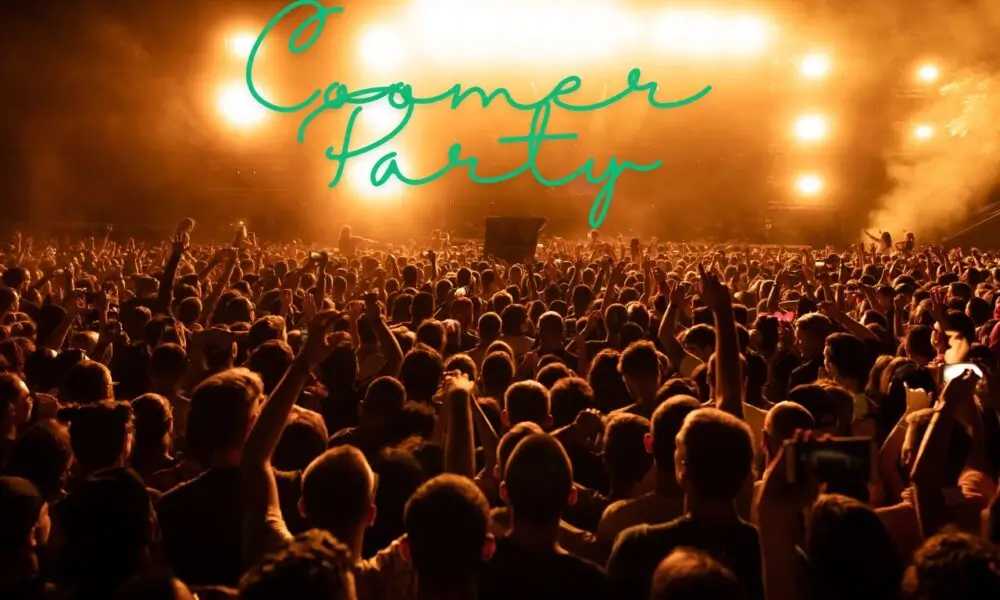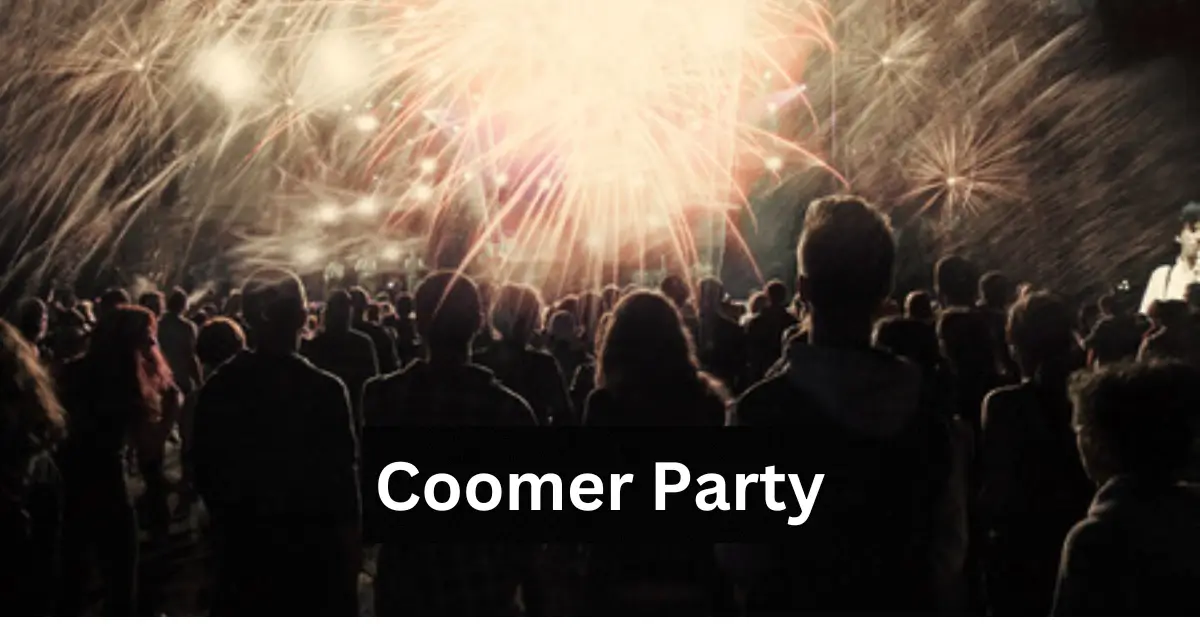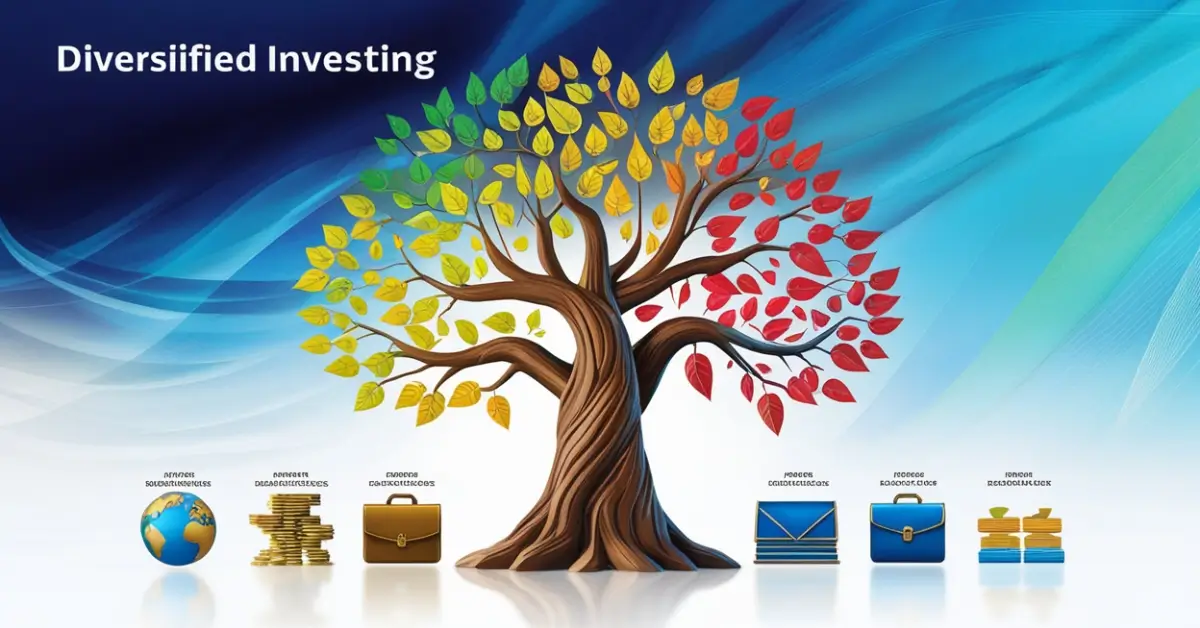In the ever-evolving world of internet culture, few concepts have emerged as uniquely intriguing and thought-provoking as the “Coomer Party.” Rooted in meme culture and internet addiction, Coomer Parties symbolize more than just gatherings—they represent the blending of humor, self-reflection, and the growing awareness of digital dependency.
This article explores the fascinating world of Coomer Parties, unpacking their origins, cultural significance, and the important conversations they bring to the forefront of modern life.
What is a Coomer Party?
A Coomer Party is more than just a casual get-together—it’s an event where people gather to celebrate and poke fun at the “Coomer” identity, an internet meme representing excessive online content consumption, particularly pornography. These parties offer a playful environment where individuals use self-deprecating humor to address serious issues like internet addiction and mental health. From meme creation contests to humorous video compilations, Coomer Parties reflect the absurdity of internet culture while serving as a space for people to connect over shared experiences.
What makes Coomer Parties so appealing is the balance between lightheartedness and the underlying acknowledgment of digital dependency. The events allow participants to laugh at their own habits while subtly encouraging deeper reflection on how these behaviors affect mental well-being. This dual approach of entertainment and awareness has fueled the rise in popularity of Coomer Party events worldwide.
Origins and Evolution of the Coomer Meme
The Coomer meme started as a satirical commentary on internet addiction, specifically centered around the overconsumption of pornography. The “Coomer” character quickly became a representation of individuals caught in a cycle of instant gratification from excessive online content.

Over time, this character grew into a larger internet phenomenon, sparking discussions about the mental health effects of internet use, social isolation, and the addictive qualities of online content consumption.
As the Coomer meme evolved, it expanded from forums and memes into real-world gatherings, giving rise to Coomer Parties. These events brought together people who shared the Coomer identity, transforming the meme into a subcultural movement that combines humor with self-reflection on digital habits. This evolution of the Coomer meme illustrates the power of internet culture to transcend online spaces and foster real-life connections.
Cultural Significance of Coomer Parties
Coomer Parties play a pivotal role in bringing together internet subcultures. Participants typically come from various online communities, all unified by a shared sense of humor and recognition of their own digital habits.
These parties create a space where people can embrace the Coomer identity without judgment, encouraging open discussions about issues like internet addiction, pornography consumption, and the challenges of managing digital dependency.
Beyond entertainment, Coomer Parties also shed light on broader societal issues. The meme culture surrounding these events often highlights how modern technology affects the human mind, relationships, and overall mental health. By blending humor with awareness, Coomer Parties provide a unique way for individuals to process and discuss their own internet usage while staying engaged with a supportive community.
Also Read: George Foreman Wife
Psychological Effects of Coomer Party Participation
At their core, Coomer Parties reflect a lighthearted attempt to deal with deeper psychological issues tied to internet addiction and digital consumption. Participating in these events allows individuals to explore their own struggles with instant gratification, self-discipline, and online habits. These parties often feature activities like meme creation contests that serve as both a source of fun and a form of self-reflection.
Despite the playful atmosphere, Coomer Parties can also spark important conversations about mental health. By openly discussing the mental strain caused by excessive screen time and pornography consumption, participants can confront their own behaviors in a supportive setting.
The humorous tone of Coomer Parties helps individuals tackle serious issues without feeling overwhelmed, providing a much-needed outlet for addressing the mental health effects of internet use.
The Role of Irony and Humor in Coomer Culture
Irony and humor are at the heart of Coomer culture, providing a way for participants to address personal struggles without taking themselves too seriously. The Coomer meme itself is a satirical representation of digital addiction, and Coomer Parties amplify this irony through meme-inspired games, contests, and activities. The humor allows attendees to laugh at themselves and others, creating a relaxed environment where people can be open about their online habits.
This self-deprecating humor, while lighthearted, also serves a deeper purpose. It gives individuals the space to engage in meaningful self-reflection, acknowledging their digital dependencies in a non-judgmental way. The irony woven into Coomer culture helps individuals recognize their own behaviors while also promoting the idea that they are not alone in their struggles.
Social Implications of Coomer Parties
Coomer Parties highlight broader social issues, particularly the increasing digital dependency in modern society. These gatherings bring to light the impact of internet addiction on personal relationships, productivity, and overall mental health. Participants often use Coomer Parties as a way to confront their own internet consumption, and in doing so, they open up conversations about the balance between online and offline life.
From a societal perspective, Coomer Parties represent a microcosm of the challenges faced by a generation raised in the digital age. The normalization of excessive screen time and instant gratification has led to widespread issues like social isolation and mental fatigue. By participating in Coomer Parties, individuals are able to discuss these problems with others who understand their experiences, fostering a sense of community and mutual support.
The Popularity and Themes of Coomer Parties
The popularity of Coomer Parties has grown significantly, particularly among internet-savvy individuals who enjoy meme culture. These events often feature distinct themes, ranging from retro internet aesthetics to meme-inspired costumes and activities. Participants might engage in meme creation contests, share viral internet clips, or even participate in discussions about digital addiction and recovery.

Themed activities and decorations are key aspects of Coomer Parties, giving them a unique and playful atmosphere. Whether attendees are dressing up as their favorite internet personalities or engaging in interactive games, the lighthearted nature of these parties keeps the mood fun and relaxed. This blend of humor and entertainment has helped fuel the rise in popularity of Coomer Parties across various online communities.
Controversies Surrounding Coomer Parties
Despite their playful nature, Coomer Parties have faced criticism from outside the community. Some argue that the events trivialize serious issues like pornography addiction and mental health, using humor to mask the deeper problems associated with digital dependency. Critics also point out that the Coomer meme often reinforces negative stereotypes, particularly regarding male sexuality and online behavior.
There is also concern that Coomer Parties may unintentionally encourage unhealthy behaviors by normalizing excessive content consumption. While the events are meant to be humorous, they can sometimes blur the line between satire and reality, leading participants to overlook the need for genuine recovery from digital addiction.
Digital Addiction and the Coomer Phenomenon
The rise of Coomer culture has sparked broader discussions about digital addiction and the role of technology in modern life. The easy access to pornography and other online content has led to a growing number of individuals struggling with internet dependency. Coomer Parties, while playful, reflect this phenomenon, encouraging participants to confront their digital habits in a supportive environment.
The phenomenon of digital addiction has far-reaching consequences, from social isolation to decreased mental health. By acknowledging the seriousness of this issue, Coomer Parties can serve as a catalyst for positive change, encouraging individuals to seek help and reduce their internet consumption. The community-based nature of these events provides a sense of solidarity for those working towards digital addiction recovery.
The Future of Coomer Culture and Parties
As internet culture continues to evolve, the future of Coomer Parties remains uncertain. While the meme has gained significant traction in recent years, it’s unclear whether the trend will endure as new internet phenomena emerge. However, the underlying issues addressed by Coomer Parties—digital dependency, mental health, and instant gratification—are unlikely to disappear anytime soon.
There is also potential for Coomer Parties to become more focused on promoting digital well-being and recovery. By shifting the conversation from irony to genuine support, these gatherings could become powerful platforms for raising awareness about digital addiction and encouraging healthier online habits.
Quick Facts
- Coomer Party: A social event rooted in the “Coomer” meme, blending humor and discussions about internet addiction.
- Coomer Identity: A term used to describe excessive online content consumption, particularly pornography.
- Meme Culture: The humorous and ironic nature of Coomer Parties draws heavily from meme culture.
- Digital Dependency: A key topic addressed during Coomer Parties, often discussed through lighthearted activities.
Final Thoughts
Coomer Parties represent a fascinating blend of internet culture, humor, and self-reflection. While lighthearted, they raise important conversations about digital addiction and the effects of internet consumption on mental health. These events provide a space for individuals to connect over shared experiences while encouraging self-awareness and personal growth.
FAQs
What is a Coomer Party?
A Coomer Party is a social gathering where people come together to humorously address internet addiction and digital dependency through meme culture and self-deprecating activities.
How did Coomer Parties start?
Coomer Parties evolved from the “Coomer” meme, which began as a commentary on internet addiction and grew into a larger subcultural phenomenon.
Are Coomer Parties harmful?
While Coomer Parties are meant to be humorous, some critics argue they trivialize serious issues like pornography addiction. However, they can also provide a supportive environment for self-reflection and community connection.










